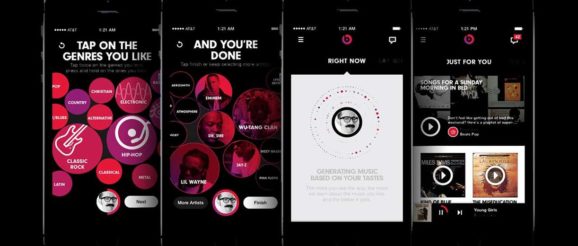Digital Innovation Agency of the Decade: R/GA

It shouldn’t surprise anyone who has been paying attention that R/GA London has been the UK’s standout digital agency in the past 10 years, having won every Campaign Agency of the Year award, bar one, since 2014.
In fact, so dominant has the Interpublic agency been that Campaign has decided not to recognise any runners-up for this category. As its digital rivals have either fallen by the wayside or pivoted into more integrated or niche offerings, R/GA is almost the last one standing.
In 2018 it launched “transformation at speed”, aimed at improving efficiency and productivity by embedding data that helps brands to thrive. It also created a mixed-reality studio and launched a financial-services offering. All this followed a similarly busy 2017, in which it introduced a consulting arm and redesigned the agency’s model to make its offering more end-to-end as a full-service digital agency.
It’s a true achievement to adapt in this way in a tough digital advertising market: consumer tastes are evolving at a rapid pace and clients have become more demanding of agencies. By truly nurturing an innovation culture from within, R/GA has managed to stay afloat in a climate of industry disruption. From 2008 to 2018, both its headcount and revenue have grown significantly. The former has more than doubled (130%) and the latter has more than quadrupled, up 350%.
The agency also opened its doors to start-ups in 2017 by creating the IoT Venture Studio, where clients can connect with fledgling tech companies. Success stories include: CupClub, which recently partnered Waitrose; Sending Feeling, linking with Deloitte Digital; and Sceenic, integrating with major over-the-top broadcasters such as Sky, Virgin and BT.
R/GA also created one of UK adland’s most significant diversity initiatives by launching Woman Up (pictured, above) in 2016 to champion female knowledge and wisdom. Instead of just talking about positive change (and there was a lot of talk in the form of breakfast discussions) Woman Up led to unconscious-bias training being instituted for staff, as well as the extension of maternity and paternity leave at the agency. The programme, which was then rolled out across the global R/GA network, has evolved from a gender-equality programme to a wider initiative promoting diversity and inclusion.
Key to R/GA’s success in keeping several plates spinning has been a stable management team over the past decade. The London office’s co-founder and chief creative officer James Temple had been at the agency for 12 when he left in 2018, while the agency has had only two managing directors since 2008 (Jim Moffatt whose tenure was five years; and Matt Lodder for the past seven).
What has made R/GA such a powerful industry force in the UK of late is its remarkable capacity to constantly reinvent itself without compromising the high standards of its work. Over the past 10 years, R/GA London has won 258 industry awards for client work, including an array of Cannes Lions, D&AD yellow and wood Pencils.
There is too little space to mention all of R/GA London’s outstanding work, but it is worth reflecting on the diversity of its output as well as the quality. In 2011 it pioneered customer loyalty for O2 by building its Priority Moments app and creating the supporting launch campaign, which helped the operator double its customers in 2012 and saved it millions in churn reduction.
For Google, it showed how to use programmatic messaging effectively by taking over 175 digital screens across London to breed new enthusiasm for Search. The screens showed one of 3,000 mini-guides that delivered information in real-time and were adapted by time of day, location and weather conditions.
Arguably, its best work has been the simplest. In 2012 it re-imagined picture watermarks for Getty by turning them into custom web links that take people directly to a page where they can buy the image and find additional information about a photograph. This solved a brand problem by turning a necessary evil into a useful feature.
For Unilever, it created “The adventures of little brush big brush”, a night-time ritual that encouraged parents and children to clean their teeth together, with challenges and a story delivered to smartphones via a Facebook Messenger chatbot. People could personalise the stories by offering up info like what time they clean their teeth and their names.
And to help Siemens win its global battle to attract talent, R/GA launched a direct marketing campaign that rallied people around the belief that engineering can change the world. It sent out 300,000 customised Google Cardboard devices so people could share inspiring films.
Oh, and last but not least, R/GA London created Apple Music – now the world’s second-most popular music-streaming service. Except it was then known as Beats Music (pictured, top) and was rebranded after Apple acquired Beats later that year – the tech behemoth’s biggest acquisition to date.
It is not an exaggeration to say that no other digital agency has come close to matching this range and depth of work, which has achieved global fame and impact. Perhaps no other agency in the world, in fact.
